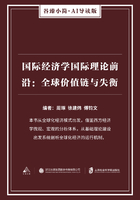Sufficient adoption of the above offsetting contractual rearran gements,independently or jointly, will restore the resourceallocation and income distribution under unregulated tenancy. The change in tenure arrangements is sufficient, for its occurrence requires no other forms of revision. On the other hand, compensating payments may or may not be sufficient. Not only may the three forms of compensating payments take place jointly, but they may take place along with adjustments in production. In a world complicated by transaction costs and risks, these contractual rearrangements will yield lower values for the contracted resources than previously. This is so because if the new arrangements involve lower transaction costs or more preferable risk distributions, they would have been chosen before the rental share restriction. To what extent the higher transaction costs or less preferable risk distributions will affect resource allocation is a question which I do not pursue here.
It is clear that the occurrence of events other than offsetting contractual rearrangements, namely, resource reallocation, depends upon (1) tenure rearrangements not taking place in all lease contracts which are affected by the rental share restriction, and (2) compensating payments not taking place in all contracts to the extent of restoring the initial equilibrium. After the enforcement of a uniform 37.5 percent maximum rental percentage in Taiwan in 1949, it is evident that these rearrangements occurred. According to the evidence presented in a later section, however, they occurred only in a small portion of the tenant contracts. This is due to other legal restrictions, and perhaps more important, as we shall see in the next chapter, due to adjustments in resource allocation.
[1].It is not clear whether the estimated mean of 56.8 percent is weighted.
B.Legal Restrictions on Offsetting Contractual Rearrangements
Rental share restriction in Taiwan involved legal provisions set at three different dates: the prereform land law before 1949; the regulation of rental percentage of 1949; and a new rent reduction act of 1951. Some of the prereform provisions governing land lease have already been discussed, in chapter 1. The reduction of the rental percentage to a maximum 37.5 percent of the annual yield, uniform for all tenant contracts, was promulgated and enforced in Taiwan on April 14, 1949. The regulations of that date,
together with the existing land law, limit the possible scope of the offsetting contractual rearrangements discussed earlier. The intention of Taiwan officials and their efforts to enforce the 1949 rental reduction are evident.
However, the 1949 regulations must not be confused with the Farm Rent Reduction Act promulgated on June 7, 1951. But the rules for enforcing the new 1951 act were not established until February 2, 1952, and after this date there exists little evidence that the additional provisions in the new act were really enforced.[1] It is interesting to point out that literature published after 1951 which discusses the 1949 farm rent reduction usually refers to the act of 1951 as if it were the 1949 regulations.[2]
In the present study we are primarily concerned with the regulations as of 1949, which include those of the prereform land law and the regulations of 1949. The changes in regulations made in the act of 1951 only interest us here as indirect evidence for hypothesis testing. Thus in every instance the specific date of the regulation will be indicated.
Restrictions on Compensating Payments
The regulations established prior to and including 1949 restricting compensating payments encompass the following:
(1) The lessor of farm land shall not collect farm rent in advance.… Security deposit shall not exceed one-fourth of the annual rent… which (together with interest) shall be deemed to be part of the farm rent[3] [prereform].
(2) If, according to arrangements originally made, the lessor is to supply the lessee with draft animals, seeds, or other implements of production, the lessor shall, after the enforcement [of the rental percentage reduction], continue to make such supply[4] [1949].
In (1) above, payments in the form of security deposit or "key" money are prohibited. In (2), payments exacted by requiring the tenant to pay the full nonland farming cost —in the event that the landowner had contracted to supply a part —are restricted. But the term "other implements of production" is ambiguous. So an appended provision in 1951 states that:
The farmhouse of the lessee which has been originally provided unconditionally by the lessor shall continue to be used by the lessee… and the lessor shall not…charge any fee therefor.[5]
And we shall see in the next section, disputes also arose as to who should bear the water fee in certain cases. In spite of this, it is clear that compensating payments were restricted by (1) and (2). The third possible type of compensating payment, where the landowner shared in all crops alike in instances when certain "cereals" were originally contracted to be consumed entirely by the tenant, was, as we shall see in the next chapter, only implicitly restricted. Nonetheless, the potential extent of this form of compensating payment is very small, and insignificant compared to the reduction in rental percentage.[6]
Restrictions on Tenure Rearrangements
The landowner's right of cancelling the lease and repossessing the land was conditionally restricted:
The lessor shall not terminate the lease contract except in accordance with the provisions of… the (pre-reform) Land Law.[7] [1949]
And in the prereform land law, we find:[8]
Art. 109: Any farm lease contract for a definite period shall, unless the lessor takes back the land for his own cultivation on the expiration of the contractual period, be deemed to have been renewed.
and
Art. 114: Any farm lease contract for an indefinite period may be terminated… where the lessor takes back the farm for his own cultivation.















